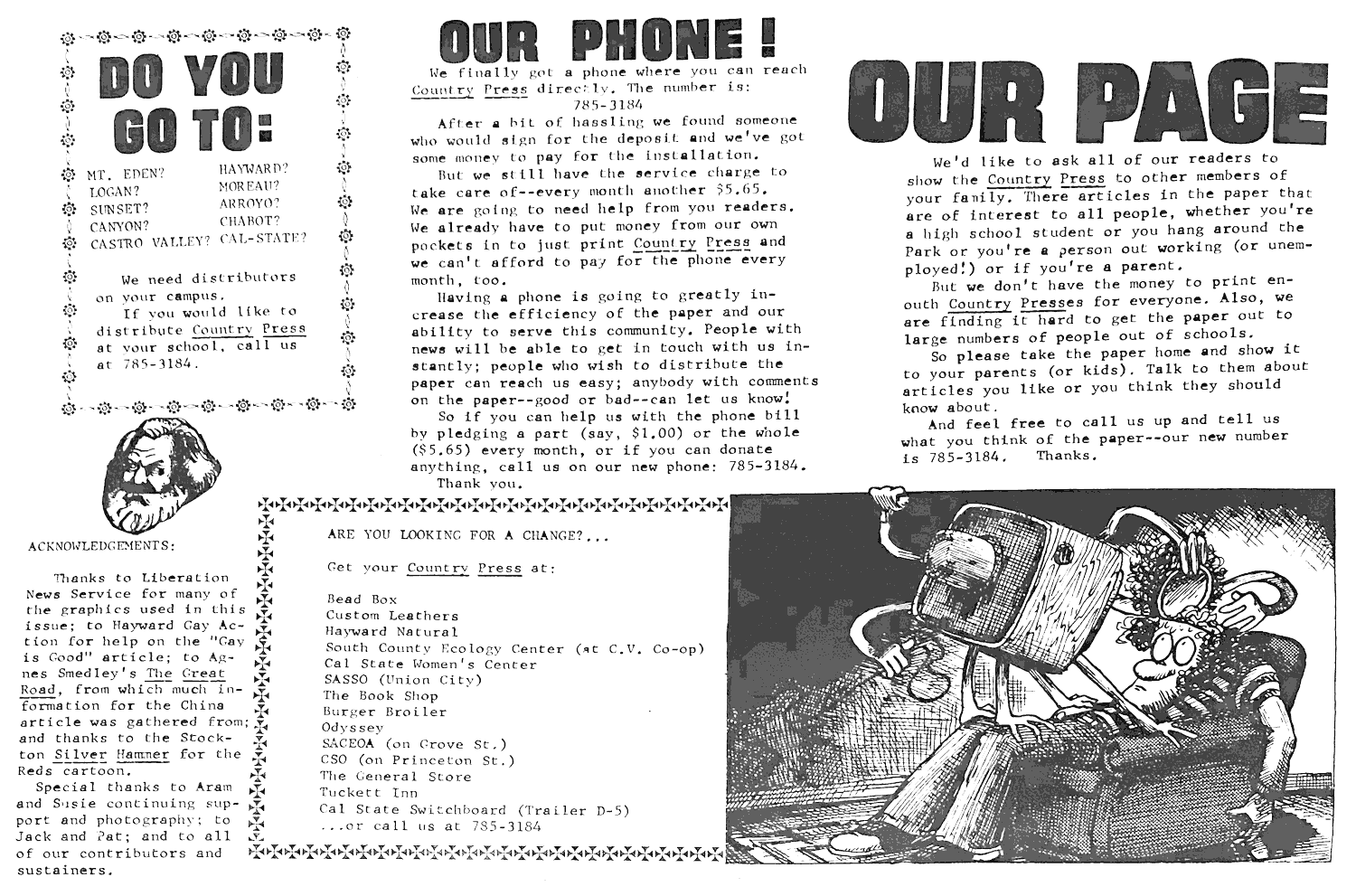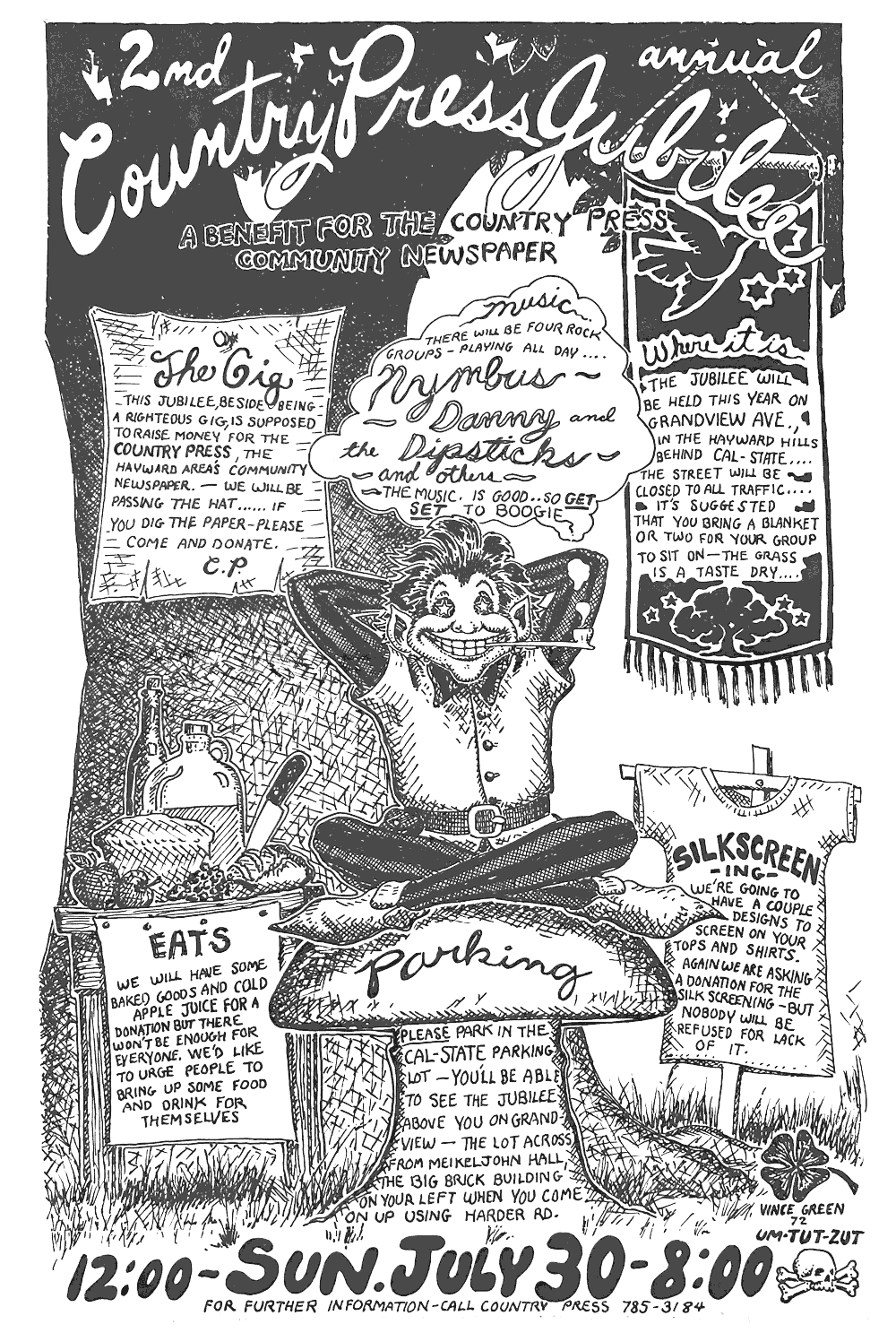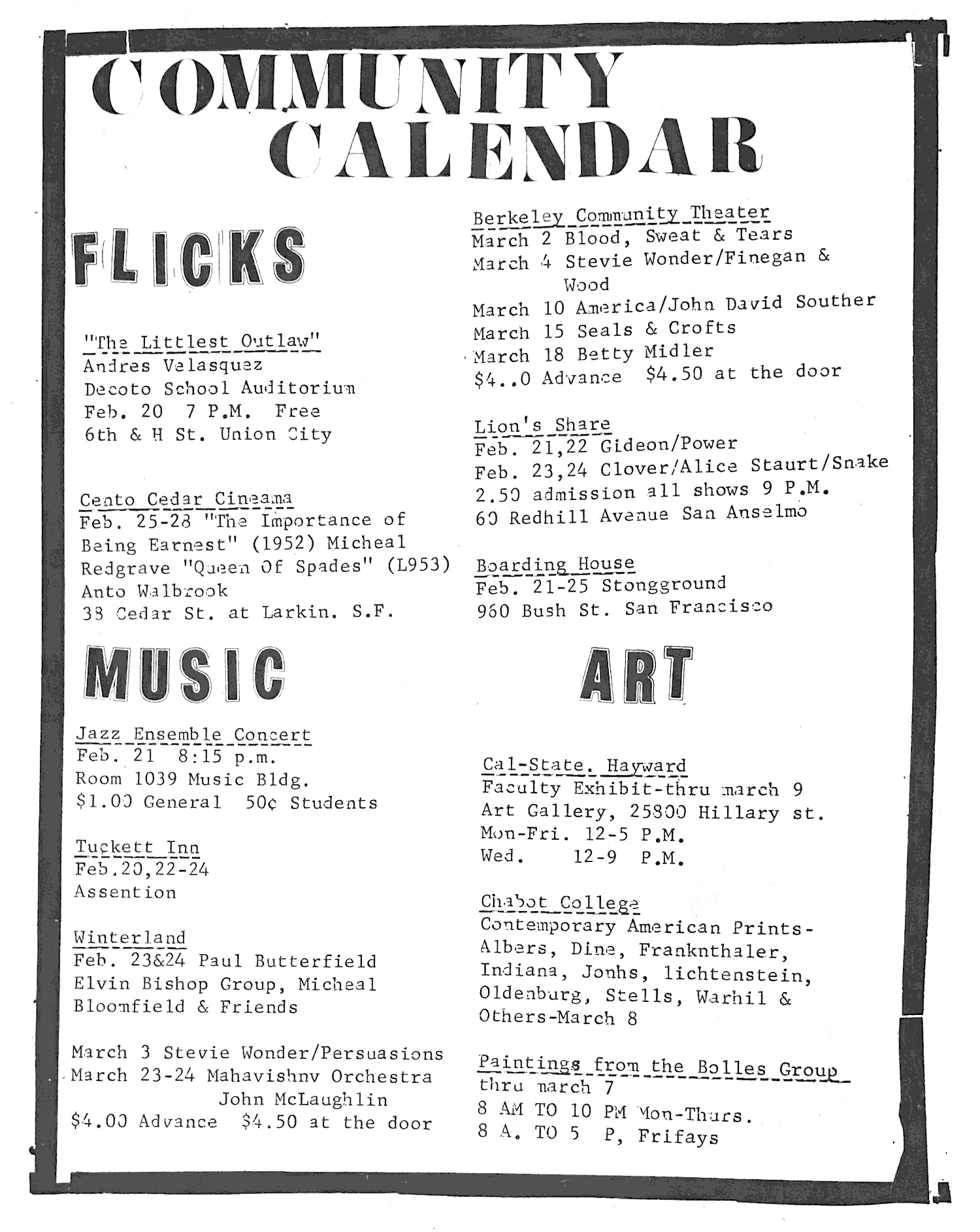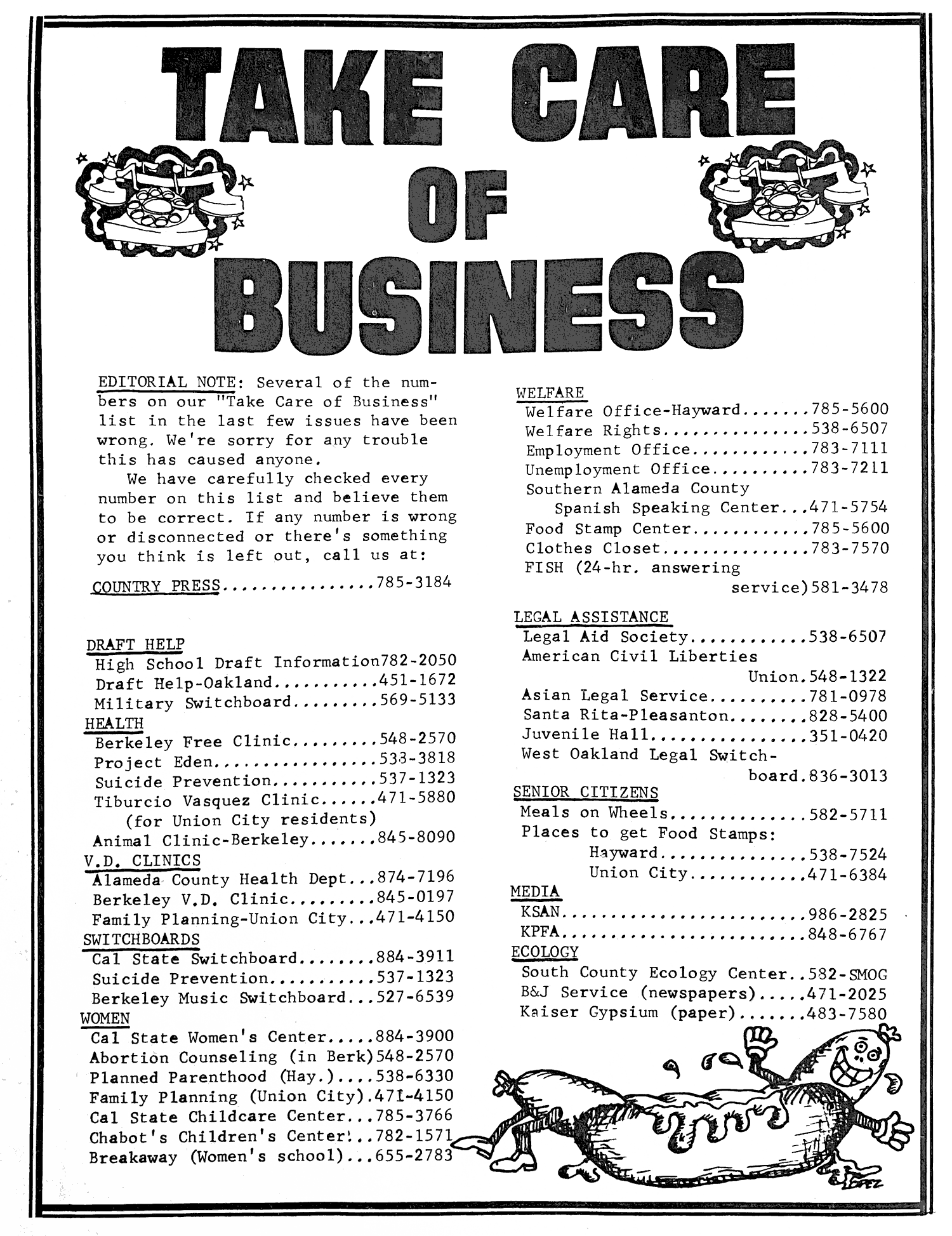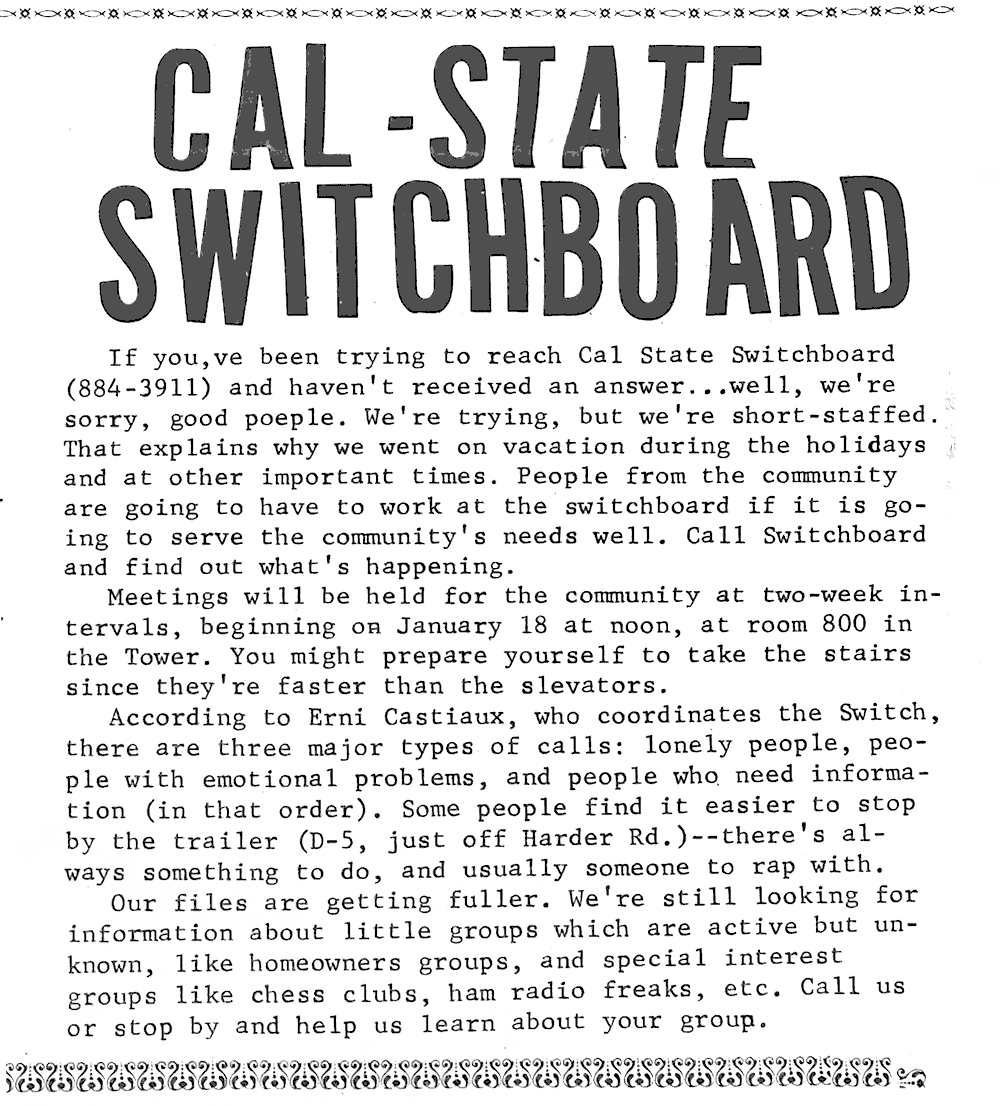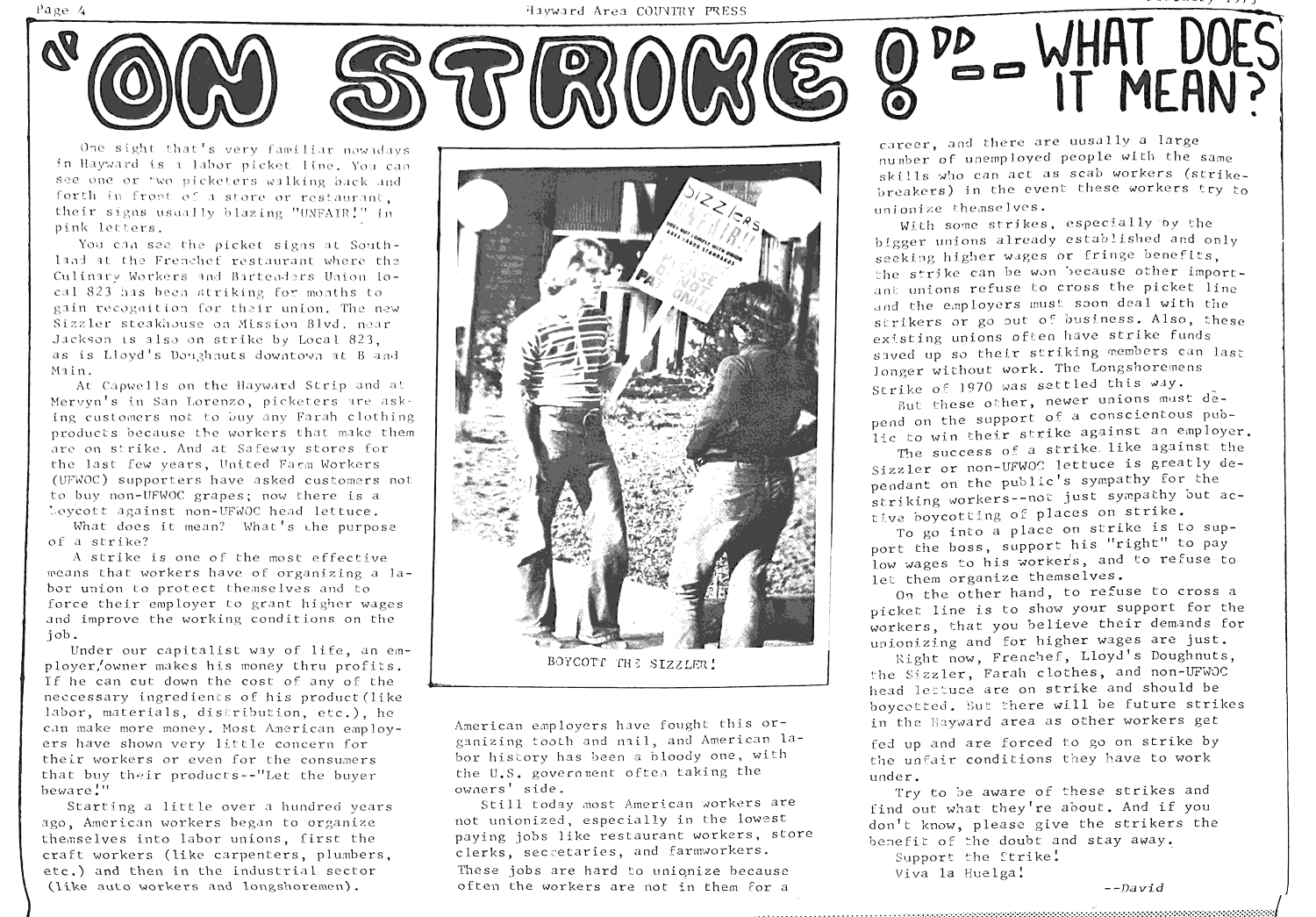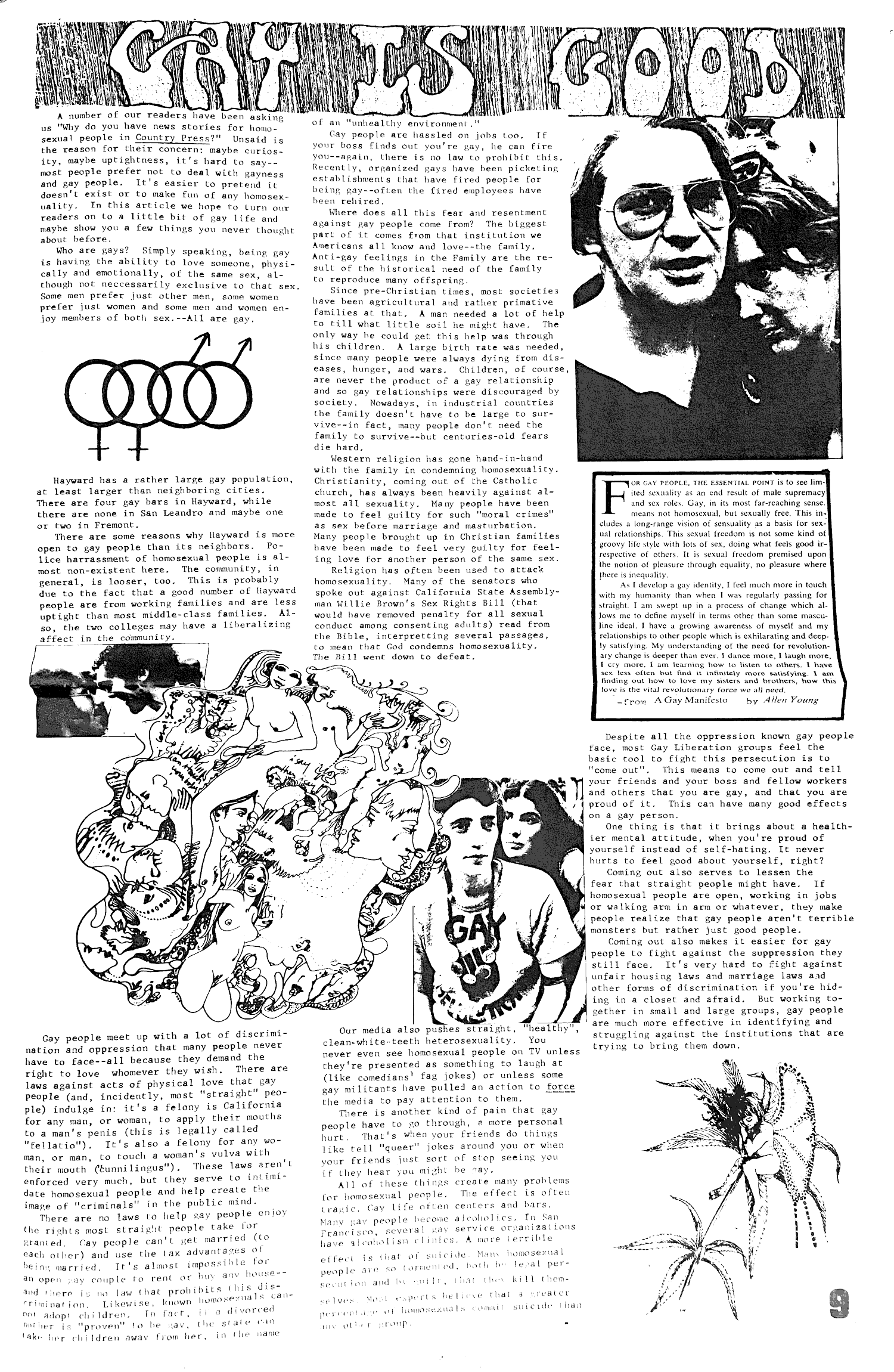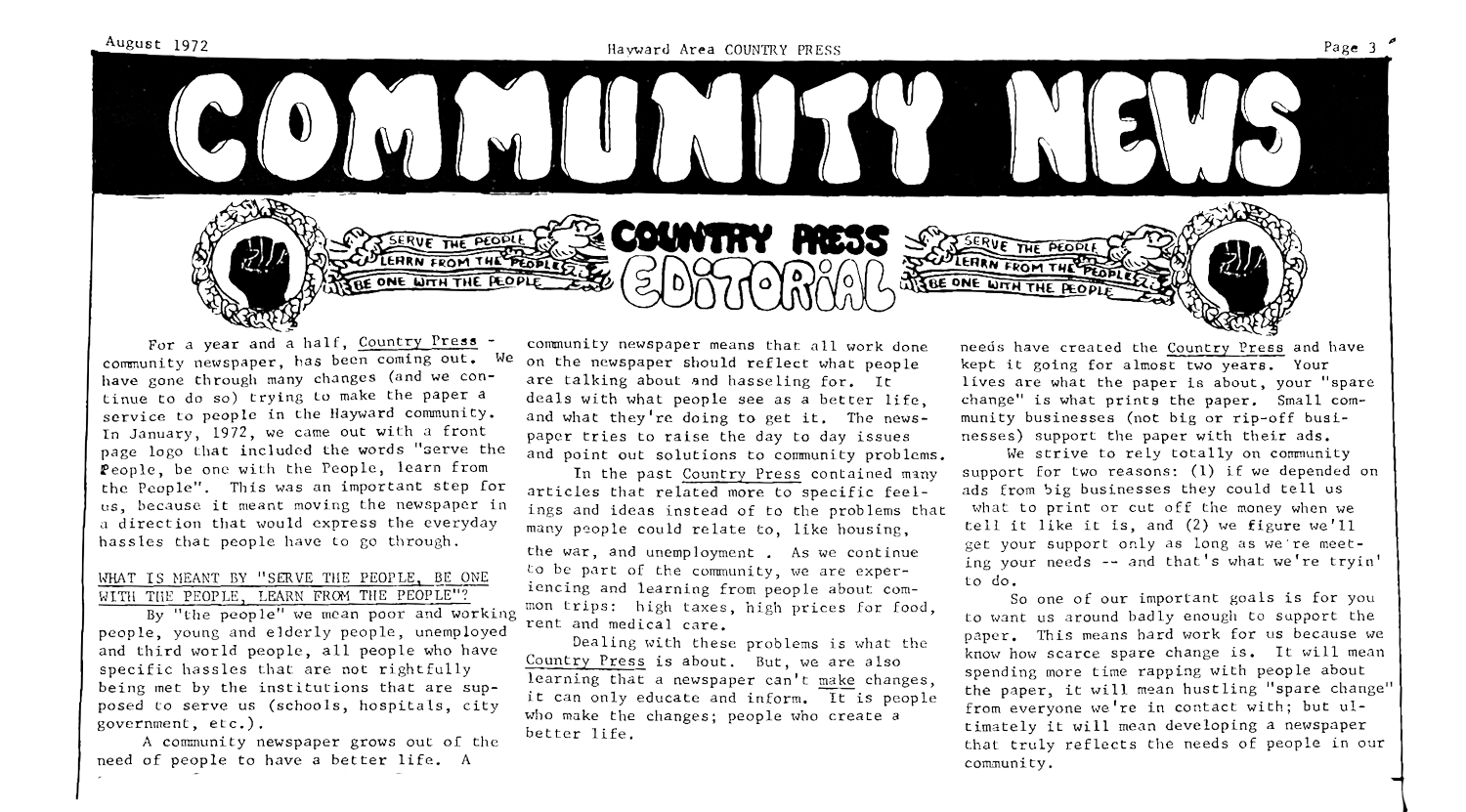
“Serve the People. Learn from the People. Be One with the People.” Published monthly between 1971 and 1973, the Country Press exemplifies the community-driven ethos prevalent among young activists engaged in various social movements in Hayward and beyond. A “collective” of youthful Haywardians living together in a house on Tennyson Road produced the newspaper—researching, writing, and formatting all of its content (literally) “in house”—and ensured its distribution at local bookstores and on high school and college campuses, including Cal State Hayward (now Cal State East Bay). The Country Press depended on the community for its funding, content, distribution, and telephone support line, the Switchboard. The paper reveals a dynamic dialogue between readers, school campuses, local stores, graphic artists, and callers to their support line.

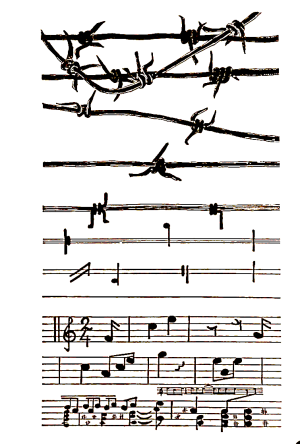
The Country Press featured a community calendar in every issue, keeping Haywardians informed about unique movies, music, and art happening across the Bay Area. The collective ensured Hayward’s representation in the Bay Area’s broader “counter-cultural” movements of the era. Can you spot a few famous names here?
The level of detail included in the event listings shows the collective’s keen interest in the arts and humanities as a part of their social justice work and community-building efforts.
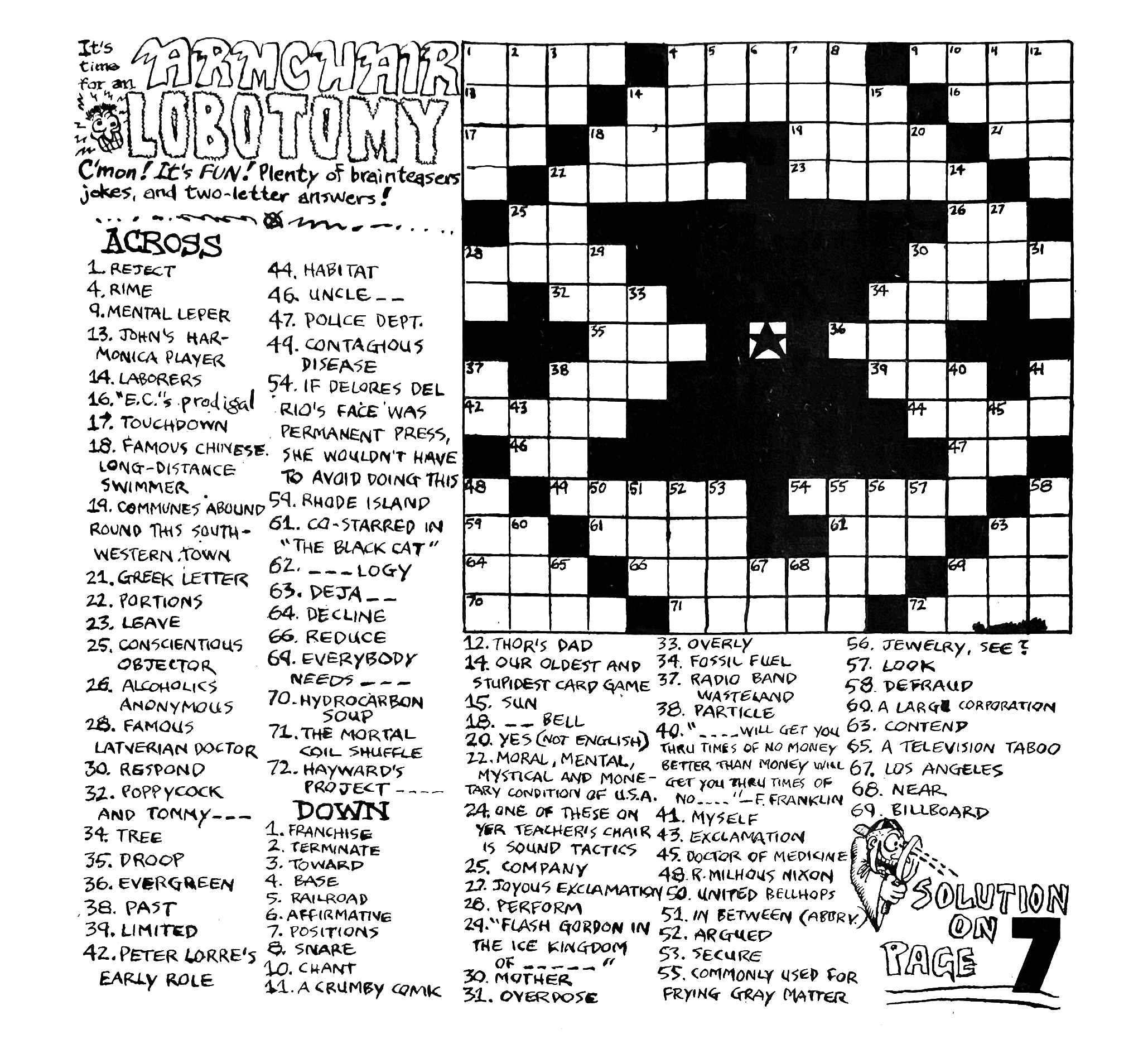
Each issue of the Country Press included a list of important community services along with their telephone numbers. The headings reflected the collective’s areas of social concern, including the draft, healthcare, legal aid, ecology, women’s rights, and economic inequality. This page would have been a valuable resource for anyone in the community, demonstrating the collective’s commitment to creating a community of care for Hayward citizens.
We can find telling evidence from the April 1972 issue. An editorial note apologized for publishing incorrect information in past issues: “Several of the numbers on our ‘Take Care of Business’ list in the last few issues have been wrong. We’re sorry for any trouble this has caused anyone.” We can conclude that readers really did try to use the community resources provided by Country Press; further, they valued the resources enough to call the Country Press Switchboard to alert editors to incorrect numbers. The community used information provided by the Country Press that they might not otherwise have known about, and readers were invested in its accuracy.
Modeled after the Haight-Ashbury Switchboard, the “Switch,” as it was known, appears to have been housed at the old Cal State Hayward administrative building, Warren Hall, at least for a period of time. The collective wanted to help youthful Haywardians connect with each other and learn about events and groups in town and on campus. “Call Switchboard and find out what’s happening,” the Country Press collective offered. Somewhat unexpectedly, it seems, the Switchboard received many calls from persons needing mental health support, with the most common calls being “lonely people, people with emotional problems, and people who need information (in that order).”
Switchboard operators, at least initially, were not fully equipped to meet these deeper community needs. Not long after the announcement of the new Switchboard, the phone number for a suicide prevention hotline appeared on their “Taking Care of Business” page.

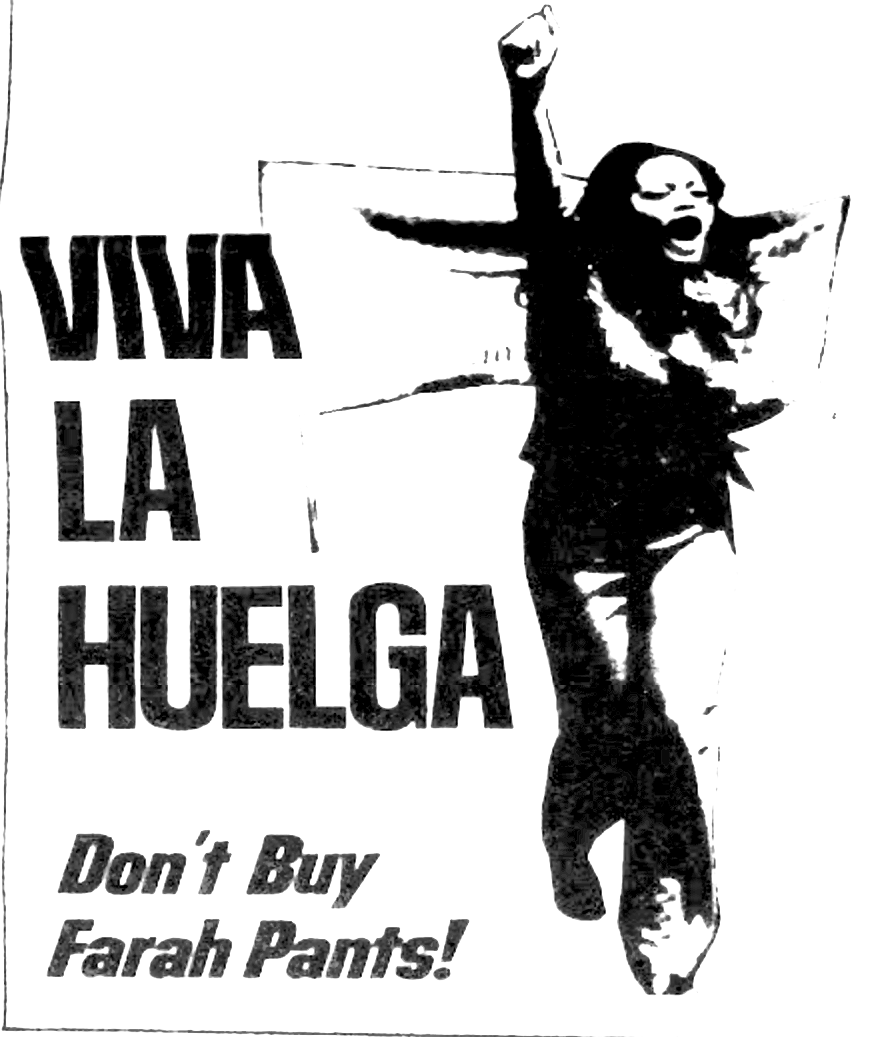
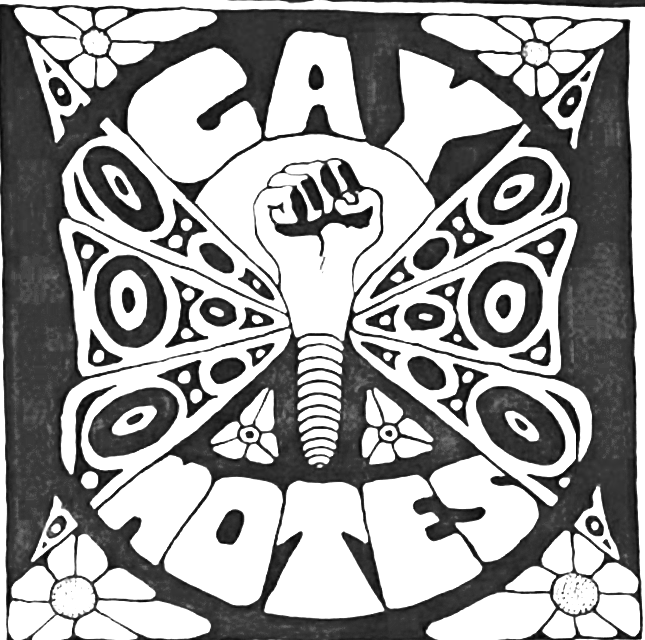
“Hayward has a rather large gay population, at least larger than neighboring cities. There are four gay bars in Hayward, while there are none in San Leandro and maybe one or two in Fremont. There are some reasons why Hayward is more open to gay people than its neighbors. Police harassment of homosexual people is almost non-existent here. The community, in general, is looser, too. This is probably due to the fact that a good number of Hayward people are from working families and are less uptight than most middle-class families. Also, the two colleges may have a liberating affect in the community.”
– (Vol. 1 No. 11 March 1972)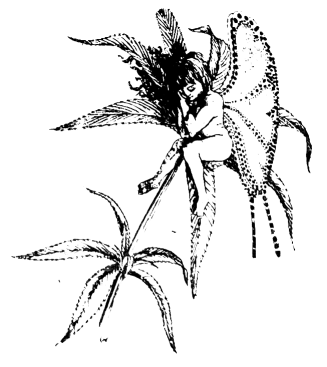
Hayward was a haven where members of the LGBTQ+ community could enjoy greater freedom and experience a sense of belonging. Known for its accepting nature during a time of widespread discrimination, Hayward offered an environment where LGBTQ+ individuals could be open and “make people realize that gay people aren’t terrible monsters but rather just good people.”
Hayward Gay Action, a local LGBTQ+ advocacy group, regularly contributed to the Country Press’s “Gay Notes” column, sharing ongoing efforts to build a strong LGBTQ+ community and to effect political change. Columns from 1972 touched on topics most relevant to its LGBTQ+ readers and their allies, including employment discrimination and the criminalization of same-sex relationships. They also recorded Hayward’s first observation of Christopher Street Liberation Day, commemorating the Stonewall riots of June 1969.
Hayward Gay Action estimated that about 25,000 LGBTQ+ people lived in Hayward in the early 1970s. While the organization established a regular presence in the Country Press and participated in the Switchboard, Hayward Gay Action struggled to build a leadership core dedicated to local advocacy. “Gay Notes” still stands as evidence of a growing sense of power among LGBTQ+ residents seeking rights and visibility in Hayward.

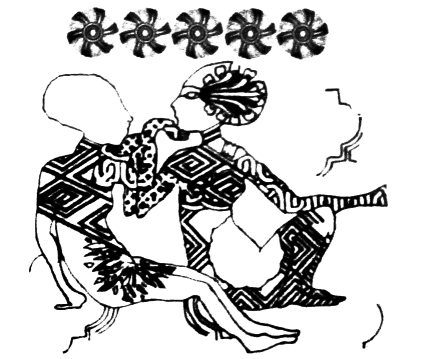

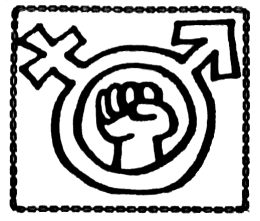
Perhaps the best way to sum up the Country Press’s role in its local community is to let the newspaper speak for itself. An August 1972 editorial reads:
“A community newspaper grows out of the need of people to have a better life. A community newspaper means that all work done on the newspaper should reflect what people are talking about and hasseling for. It deals with what people see as a better life, and what they’re doing to get it. The newspaper tries to raise the day to day issues and point out solutions to community problems. … Dealing with these problems is what the Country Press is about. But, we are also learning that a newspaper can’t make changes, it can only educate and inform. It is people who make the changes; people who create a better life.”
Citations
Country Press Hayward Area Community News Service, 1971-1973. Hayward Area Historical Society.
